SUMMARY
This is AI generated summarization, which may have errors. For context, always refer to the full article.
![[OPINION] Bongbong and the media: So-so](https://www.rappler.com/tachyon/2022/10/bongbong-marcos-media-october-11-2022.jpg)
When Bongbong Marcos assumed the mantle of leadership in June 2022, I honestly had very low expectations. Coming on the heels of a Duterte presidency, the baseline was clearly low insofar as the media was concerned – we had to endure agonizingly long late night briefings that were incoherent, nonsensical many times, and fueled by the narcissism of officials who either just wanted to hear themselves or kowtow to the “host” of the late night show. The aide who pretended to be a senator was a regular fixture too – another painful sight to behold.
To ease the strain on our Malacañang reporter then, Pia Ranada, editors decided to rotate among reporters and researchers the assignment of monitoring, watching, or listening to hours of talk that many times yielded nothing earth-shaking. “Walang bago” (Nothing new) was an all too frequent verdict after a punishing long wait for the “show” to end. Walang katapusang palabas (a nonending show) was a common lament. (READ: Data show people are tuning out of Duterte’s late-night talks)
Transcripts were not immediately available either, compared to the Aquino administration. How could transcribers magically finish hours of gibberish often laced with curses and long-winded rants? The distinction of having the most unpresidential of briefings belongs to Duterte, hands down. (READ: How ‘nocturnal, unconventional’ Duterte upended news coverage)
Given this negative baseline, Marcos’ inaugural speech was much anticipated. Remember that there wasn’t much to go by during the presidential campaign because the presidential candidate refused to participate in the numerous debates organized by the Commission on Elections and various groups. His popularity at the polls had to be preserved at all costs. Less talk, less mistakes was the adage he seemed to live by, and it proved to be a wise decision on his part, if victory was his sole indicator.
Media and the more inquisitive public who were entitled to have more information were, however, the clear losers.
His inaugural speech, if you recall, was pretty well done. He said: “I am here not to talk about the past; I am here to tell you about our future…. We do not look back but ahead; up the road that we must take to a place better than the one we lost in the pandemic: gains made and lost; opportunities missed; well-laid plans superseded by the pandemic.”
This too: “Whatever is in a person to make changes for the better of others, I lay before you now in my commitment. I will try to spare you; you have your other responsibilities to carry. But I will not spare myself – from shedding the last bead of sweat or giving the last ounce of courage and sacrifice.”
Nice to hear and don’t snicker at the last one. Sadly, there was nothing said about the media, transparency, freedom, and democracy – those long cherished ideals fought for by generations past. But, then again, not surprising for someone surnamed Marcos.
Make media irrelevant
If there is one thing that Duterte and Marcos have in common, it is probably the belief that mainstream media can be sidelined and rendered irrelevant. Under them, we have seen the ascendancy of pro-Duterte bloggers and pro-Marcos vloggers alike, loyal or fanatic supporters whose motivations range from sincere loyalty to pecuniary interests. Besides them, there are the so-called media associated with religious groups like Apollo Quiboloy’s SMNI or Sonshine Media Network International and the Iglesia ni Cristo-owned NET 25 that have spread disinformation with nary a thought for ethics or journalistic standards.
Through blatant and shameless propaganda, they have managed to tarnish the image of journalists and tear to shreds their credibility. Mission accomplished. There are dangerous consequences, however, which may not yet be too evident, but which have already manifested themselves in recent disasters, threats to personal freedoms, and even shrinking democratic spaces. The true value of truth-tellers often becomes known and appreciated during times of crisis.
The heavy-handed style of Duterte does not, however, seem to be the preference of Marcos. He’s had regular-hour press conferences, let his former spokesperson (really an outsider) communicate with the media, and has made no move to shame or exclude critical media from Palace coverages. Civility, not crudeness.
Under the Marcos administration, two journalists have been killed – tough-talking critic of Duterte and Marcos, broadcaster Percival Mabasa (a.k.a. Perci Lapid) and Negros Oriental radio broadcaster Rey Blanco. The latest number of dead journalists since 1986 stands at 197, according to a tally by the National Union of Journalists in the Philippines.
How effective or useful has the Presidential Task Force on Media Security been? Beyond training and seminars, this body created in 2016 by Duterte’s Administrative Order 1 has done nothing much thus far, especially in terms of convictions over journalist killings or even a vigorous defense of those being attacked on social media.
The Office of the Press Secretary (formerly the Presidential Communications Operations Office or PCOO) is proposing a P1.22-billion budget for 2023 to cover its attached agencies, 24% lower than the previous administration’s P1.61-billion approved budget for 2022. Part of its responsibility is to see to it that the public has access to information so that it gains insight into how decisions are reached, who influences key policies, how programs and even trips are funded, what achievements have been made.
The administration has remained opaque, however, its operations, actors and players, and dynamics still hard to decipher. With little understanding of what exactly goes on inside Malacañang, it is harder for the media to exact accountability from those who wield power, the President included.
Marcos’ newly-appointed Executive Secretary Lucas Bersamin, also former Supreme Court (SC) chief justice, was reported to have declared during Mabasa’s wake the administration’s intent “to get to the bottom of the crime.” Good to hear again, but until there is anything concrete, these remain empty words. As of October 2021, the Philippines ranked 7th in the Global Impunity Index of the Committee to Protect Journalists.
More sophistication?
In one conversation with a Duterte supporter not long after elections, we agreed that a more sophisticated Marcos need not resort to violence against, or harassment of, journalists. The “cleaner” and wiser way to go would be to maximize vloggers and influencers and push mainstream media to the sidelines by using likes, followers, and reach as currency, and promoting disinformation and myth-making.
No need for crude martial law tactics like his father or bloody impunity and cyber libel cases under Duterte that could draw the attention and ire of the international community. The Marcos name by itself already carries tremendous baggage.
Marcos’ first spokesperson and Duterte supporter Trixie Cruz-Angeles is now out of commission after just a few months in office. Ordered suspended by the Supreme Court for three years in 2016, Angeles recently resigned supposedly due to health reasons. Interestingly, it coincided with the entry of Bersamin – among the SC justices who signed her suspension order.
To this day, no replacement for Angeles has been announced, although various names have been floated. Lawyer Cheloy Garafil, who stepped down as chair of the Land Transportation Franchising and Regulatory Board, has been named OIC press secretary.
Transparency
To date, Marcos has had very few interactions with the Malacañang Press Corps, perhaps not even knowing all of them by name. Formal sit-downs with the MPC for a briefing have totaled about three, excluding a couple of “ambush” interviews and a few sessions during his foreign trips.
One Palace reporter says Marcos has been neither warm nor antagonistic towards the media. Neither has he shown an obsession with sharing important data and statistics with journalists that past presidents like Fidel V. Ramos, for example, had shown.
Ramos had been praised for keeping healthy relations with the media, understanding full well the important check-and-balance role that journalists play in a vibrant democracy. There was easy access to him via his weekly press conferences, he engaged critics, and never took criticisms personally. Ironically, it was a former general who turned out to be more liberal with the media.
Bongbong Marcos must feel the compulsion to break away from a past sullied by his father’s actions (the family has yet to acknowledge grievous mistakes and apologize for them). He has been observed to be rather inarticulate, fumbling in his speech, though more coherent than Duterte.
He could well be the antithesis of his predecessor and Philippine media will be happy enough for that. But is this as good as it gets? – Rappler.com
Add a comment
How does this make you feel?
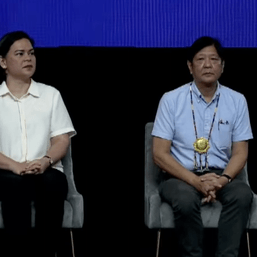
![[In This Economy] Is the Philippines quietly getting richer?](https://www.rappler.com/tachyon/2024/04/20240426-Philippines-quietly-getting-richer.jpg?resize=257%2C257&crop=194px%2C0px%2C720px%2C720px)
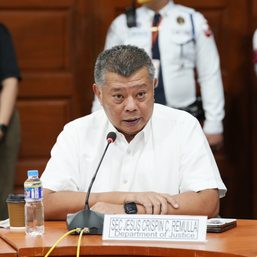
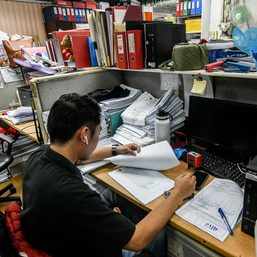
![[OPINION] If it’s Tuesday it must be Belgium – travels make over the Marcos image](https://www.rappler.com/tachyon/2024/04/tl-travel-makeovers-marcos-image.jpg?resize=257%2C257&crop_strategy=attention)
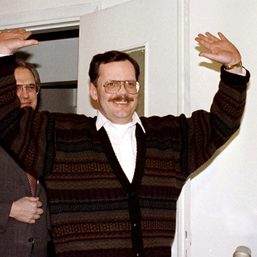
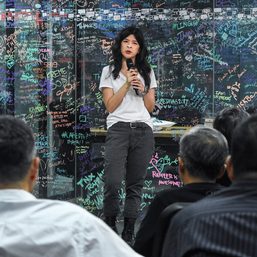

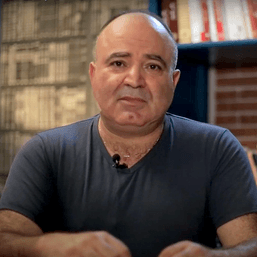
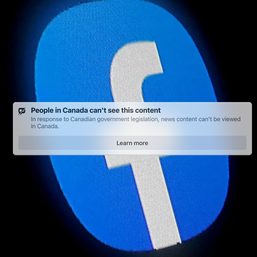
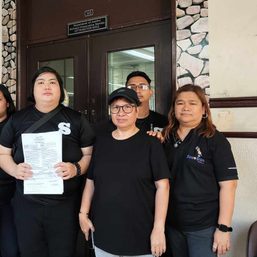

![[Newsstand] The media is not the press](https://www.rappler.com/tachyon/2024/04/tl-media-is-not-the-press-04132024.jpg?resize=257%2C257&crop=281px%2C0px%2C720px%2C720px)
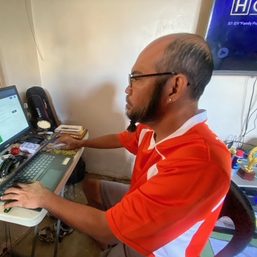
There are no comments yet. Add your comment to start the conversation.